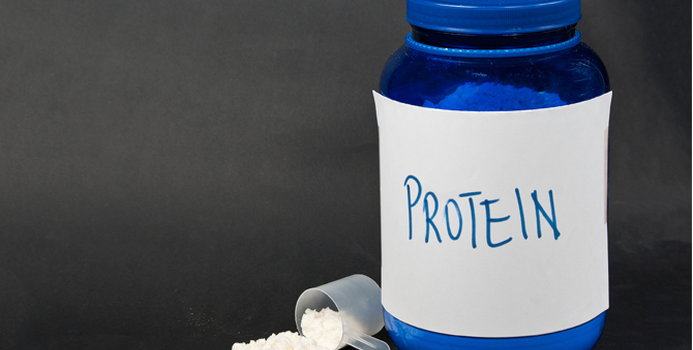Spirulina, which is a type of microscopic blue-green algae, gained popularity as a dietary supplement due to its high content of vitamins and minerals. It also represents a valuable source of protein, since it contains more of this nutrient than meat and soy combined.
Spirulina for High Protein Diets
The complete protein found in spirulina represents between 55 and 77 percent of the dry weight of this alga. The fact that it is complete means that it includes all essential amino acids. By comparison, protein constitutes only 27 percent of meat and 34 percent of soy. Despite containing a complete protein, spirulina includes smaller quantities of the following 3 amino acids than eggs, meat and milk:
- Cysteine
- Lysine
- Methionine
In terms of protein content, legumes cannot be compared to spirulina, as they include a much smaller amount. The high content of protein makes spirulina an ideal dietary supplement for those who want or need to follow a high protein diet. Proteins create a sensation of satiety, thus decreasing the amount of food that you need to eat. By following a diet that is rich in proteins, you will be able to get rid of the extra pounds very easily.
Essential Fatty Acids Contained by Spirulina
This dietary supplement includes a wide range of essential fatty acids:
- AA (arachidonic acid)
- ALA (alpha-linolenic acid)
- DHA (docosahexaenoic acid)
- EPA (eicosapentaenoic acid)
- GLA (gamma-linolenic acid)
- LA (linoleic acid)
- SDA (stearidonic acid)
These omega-3 and omega-6 fatty acids cannot be synthesized by your body, so the diet remains the only source. Some of them, such as DHA and EPA are used as treatments for depression, while others are needed for treating inflammation. Besides that, many essential fatty acids have antioxidant properties and also play an important role in the weight loss process.
Mineral and Vitamin Content of Spirulina
Spirulina abounds in vitamins and minerals, a fact that makes it a very effective dietary supplement for anyone who suffers from a nutrient deficiency. The vitamins contained by this alga include:
- Vitamin A
- Vitamin B complex
- Vitamin C
- Vitamin D
- Vitamin E
- Vitamin K
Keep in mind that not all these vitamins are water-soluble, so there is a risk of toxicity. As mentioned before, spirulina also contains a wide range of minerals:
- Boron
- Calcium
- Chloride
- Chromium
- Copper
- Germanium
- Iodine
- Iron
- Manganese
- Magnesium
- Molybdenum
- Phosphorus
- Potassium
- Selenium
- Sodium
- Zinc
Spirulina seems to be particularly rich in potassium, but the other minerals are also found in considerable amounts that are effective for treating deficiencies.
Adverse Reactions of Spirulina
People suffering from phenylketonuria should not use spirulina. One of the amino acids found in this alga, namely phenylalanine, cannot be metabolized in people with this metabolic disorder. Because of this fact, the amino acid will accumulate in the brain, eventually leading to harmful effects.
Spirulina may also pose a health threat to people who suffer from kidney or liver diseases. When this dietary supplement is consumed in great amounts, the high content of vitamins and minerals may lead to toxic reactions. Microcystins are toxins that are sometimes found in spirulina. Even though these toxins are very seldom present, when ingested, they create deposits in the liver, leading to liver cancer or other diseases that affect this organ.



